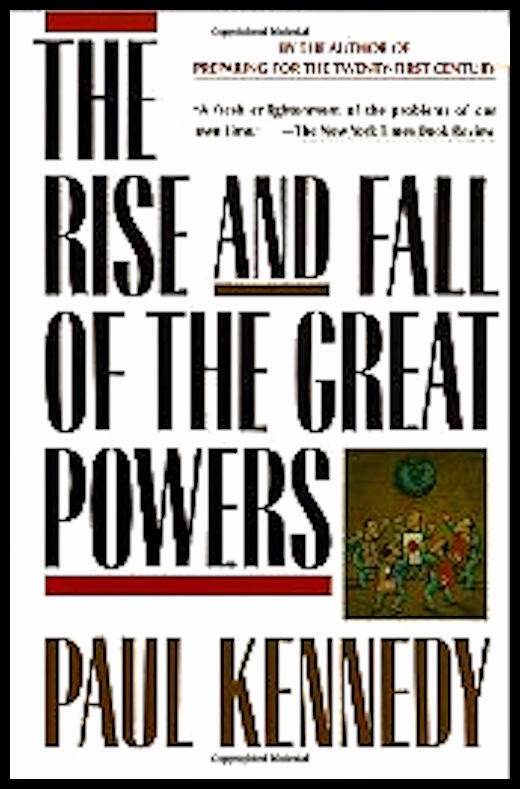THE RISE AND FALL OF THE
GREAT POWERS
This book, by Paul Kennedy, first published in 1987, explores the politics and economics of the Great Powers from 1500 to 1980 and the reason for their decline. It then continues by forecasting the positions of China, Japan, the European Economic Community (EEC), the Soviet Union and the United States through the end of the 20th century.
Kennedy argues that the strength of a
Great Power can be properly measured only relative to other powers, and he
provides a straightforward and persuasively argued thesis: Great Power
ascendancy (over the long term or in specific conflicts) correlates strongly to
available resources and economic durability; military overstretch and
a concomitant relative decline are the consistent threat facing powers whose
ambitions and security requirements are greater than their resource base
can provide for.
Throughout the book he reiterates his
early statement: "Military and naval endeavors may not always have been
the raison d'être of the new nations-states, but it certainly
was their most expensive and pressing activity", and it remains such until
the power's decline. He concludes that declining countries can experience
greater difficulties in balancing their preferences for guns, butter and
investments.


No comments:
Post a Comment
Note: Only a member of this blog may post a comment.